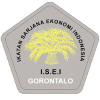Pengaruh Teknologi Informasi Terhadap Proses Belajar Siswa UIN Surabaya
Abstract
The existence of developments in technology has had a significant impact on educational institutions. Information technology in schools has many benefits for the learning process and can influence student learning processes. With the existence of technology, this research aims to identify how technology influences the student learning process. This is an important aspect in the learning process. Therefore, in the research method the researcher used a quantitative approach in this research. Questionnaires, documentation and observation are techniques which are applied with the aim of collecting data. The research that the researcher wrote applied media in the form of a questionnaire and then disseminated using electronic media. The researcher proposed a hypothesis namely 'Information technology influences the learning process of UIN Surabaya students'. In the research results, for the testing method used, the researcher used validity, reliability and regression testing techniques. Researchers implemented analysis techniques on the data applied, namely simple linear regression. From the data that has been managed, it can be concluded that there is an influence between variable
Keywords
Full Text:
PDFReferences
Ahmad, Novita, Rosman Ilato, and Boby R. Payu. 2020. "Pengaruh Pemanfaatan Teknologi Informasi Terhadap Minat Belajar Siswa." Jambura Economic Education Journal 2(2):70-79. doi: 10.37479/jeej.v2i2.5464.
Bawaneh. 2011. "Does Using Computer Technology Improve Students ' Performance ? Evidence from a Management Accounting Course." Journal of Business 2(10):266-275.
Benar, A. 2019. "Pengaruh Penggunaan Gadget Terhadap Hasil Belajar Siswa Pada Mata Pelajaran Ekonomi Siswa Kelas CI IPS DI SMA NEGERI 3 KOTA JAMBI." Journal of Chemical Information and Modeling 53(9):1689-1699.
Carrillo dkk. 2011. "Information Technology and Student Achievement: Evidence from a Randomized Experiment in Ecuador. Ssrn,." Accounting, Auditing and Accountability Journal. Retrieved (https://doi.org/10.2139/ssrn.1818756).
Flora Siagian, R. E. 2015. "Pengaruh Minat Dan Kebiasaan Belajar Siswa Terhadap Prestasi Belajar Matematika." Formatif: Jurnal Ilmiah Pendidikan MIPA 2(2):122-131.
Guney. 2009. "Exogenous and Endogenous Factors Influencing Students' Performance in Undergraduate Accounting Modules." Accounting Education 18(1):51-73.
Hasan, Nor, Noorlailie Soewarno, and Isnalita Isnalita. 2019. "Pengaruh Teknologi Informasi Terhadap Proses Pembelajaran Dan Prestasi Akademik Mahasiswa." Jurnal Kajian Akuntansi 3(1):68. doi: 10.33603/jka.v3i1.2130.
Jabr, N. H. 2011. "Social Networking as a Tool for Student and Teacher Learning." International Journal of Business and Social Science 2(12):85-86.
Kadous dkk. 2001. "The Effects of Exposure to Practice Risk on Tax Professionals' Judgements and Recommendations." Contemporary Accounting Research 18(3):451-75.
Kanapathippillai dkk. 2012. "The Impact of a Computerised Consolidation Accounting Package (CCAP) on Student Performance." Asian Review of Accounting 20(1):4-19.
Khan. 2009. "Effects of Information Technology Usage on Student Learning - An Empirical Study in the United States." International Journal of Management 26:354.
Mustakhini. 2009. Sistem Informasi Teknologi. Yogyakarta: Andi Offset.
Nugraha. 2015. "Pengaruh Persistensi Diri Dan Kebiasaan Belajar Terhadap Kemampuan Pemecahan Masalah Matematika Di SMP Swasta Jakarta Timur." Research and Development Journal Of Education 2(1):12-19.
Purwanti. 2012. "Penerapan Pendekatan Kontekstual Untuk Meningkatkan Minat Belajar Siswa Pada Pembelajaran IPA Di Sekolah Dasar." Jurnal Ilmiah Guru 16(2):1-6.
Putri, Vanya Karunia Mulia. 2022. "5 Asumsi Dasar Teori Uses and Gratifications." 03 Januari. Retrieved June 29, 2024 (https://www.kompas.com/skola/read/2022/01/03/100000369/5-asumsi-dasar-teori-uses-and-gratifications#:~:text=Teori uses and gratifications menjelaskan bagaimana media dapat,memilih serta menggunakan media sesuai motif dan kebutuhannya. ).
Rauniar dkk. 2014. "Technology Acceptance Model (TAM) and Social Media Usage: An Empirical Study on Facebook." Journal of Enterprise Information Management 27(1):6-30.
Sudjana. 2002. Metoda Statistika. Bandung: Tarsito.
Sugiyono. 2006. Metode Penelitian Kuantitatif Kualitatif Dan R&D. Bandung: Alfabeta.
Sunadi, L. 2010. "Pengaruh Motivasi Belajar Dan Pemanfaatan Fasilitas Belajar Terhadap Prestasi Belajar Siswa Pada Mata Pelajaran Ekonomi Kelas Xi Ips Di SMA Muhammadiyah 2 Surabaya." Jurnal Pendidikan Ekonomi 1-9.
Vasarhelyi M. A & Romero. 2014. "Technology in Audit Engagements: A Case Study." Managerial Auditing Journal 29(4):350-65.
Yaftian dkk. 2017. "Learning Commercial Computerised Accounting Programmes Perceptions and Motivations." Accounting Research Journal 30(3):312-32.
DOI: https://doi.org/10.37479/jeej.v7i1.25843
Refbacks
- There are currently no refbacks.
Copyright (c) 2024 Fauziyah Ramadhani, Isa Anshori

This work is licensed under a Creative Commons Attribution-ShareAlike 4.0 International License.
Jambura Economic Education Journal has been indexed:
PUBLISHED BY :
Prodi Pendidikan Ekonomi Fakultas Ekonomi
Universitas Negeri Gorontalo, Indonesia


















